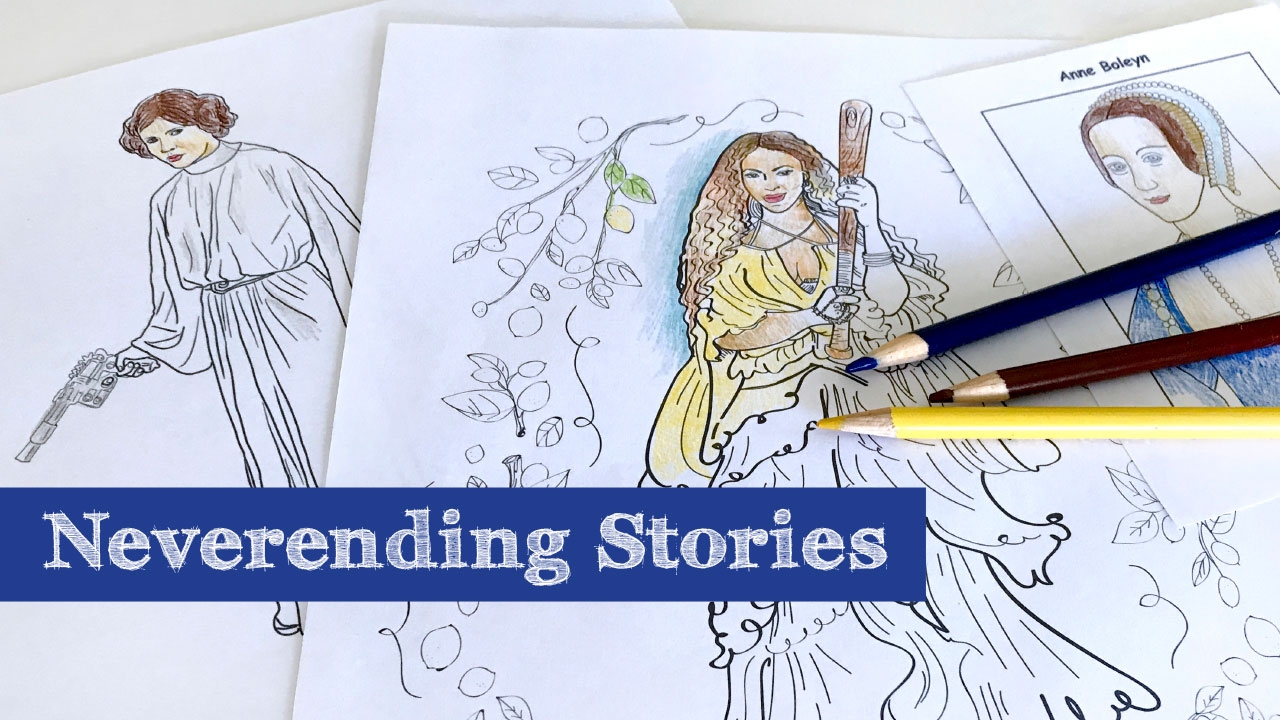Princess Leia of Star Wars lived a long time ago in a galaxy far, far away, but her adventures just might shed some light on modern American politics.
In a recent novel, Star Wars: Bloodline, written by Claudia Gray, Leia is a ruggedly diplomatic political leader struggling to mend the pieces of a society fractured between populists and centrists. Though the book was written well before the November 2016 elections, it has taken on a different tone in the days since, says Michelle Cook, Ph.D., assistant director for national and international fellowships and scholarships in the UAB Honors College. “My students probably think about it differently now than they would have if they had read it earlier.”

And that illustrates the point of Cook’s Honors College freshman seminar, titled “All Your Faves Are Problematic: Critical Thinking, Perspective, and Power.” Time can give new meaning to a text, influenced by political changes, social movements, and cultural shifts. Texts lead “rich, complicated lives” beyond what their creators may have intended, Cook writes in her syllabus. Depending on how they are interpreted, they can be used to “construct, reinforce, and possibly subvert or dismantle ideologies.”
Take Anne Boleyn, for example. (A person can be a text, along with movies and TV shows, comic books, and historical events, Cook says.) Little is known about the second wife of Henry VIII other than that she was the queen of England who was beheaded in 1536, Cook explains. “Practically nothing survives that gives us her own voice. Instead, her story has been told from many perspectives, and each of those perspectives has something to gain from describing Boleyn in a particular way,” she says. “After Boleyn’s death, Catholics described her as a slut, Elizabethans saw her as a Protestant heroine, and Romantics pictured her as a victim.” Using Susan Bordo’s study The Creation of Anne Boleyn, Cook and her students examine the “constructed meanings” of Boleyn. These offer “a model for peeling back layers surrounding other texts, asking questions where the methodologies for finding answers may come from a variety of places,” and making connections across disciplines, Cook says.
Skills for Success
Such critical thinking skills are essential for young students new to a campus teeming with different worldviews. They also lay the foundation for success in future study and research, Cook says. She encourages students to keep an open mind while looking for common ground.
The seminar’s open dialogue creates “a respectful, nonjudgmental environment that makes it easy to share views, agree, or disagree,” says Alice Grissom, a Madison, Alabama, native majoring in English and history who took the course as a freshman. “You can add to what someone says or reinterpret it.”
As they explore the shifting interpretations of texts, students offer critical perspectives of their own. Along with Star Wars and English royalty, the source material includes everything from a Robert Browning poem and the 19th century short story “The Yellow Wallpaper” to the Salem Witch Trials, Buzzfeed articles, and the Marvel comic Deadpool. And, of course, Beyoncé.

More to the Story
In examining Beyoncé’s Emmy-nominated HBO special Lemonade, Cook and her students discuss its messages about politics, race, and gender. They also examine the battles over meaning and ownership of those messages. Beyoncé is a “text struggling to write itself,” Cook says. Through her career and her works, “you can use a feminist lens to look at how power is constructed, and how you’re supposed to perform as a man or as a woman.”
Students divide into groups to study Beyoncé’s discography from a social and historical standpoint. The project also teaches them about collaboration, compromise, division of labor, and editing their work. And like the rest of the course, it provides them with tools to help them empathize with other people from diverse backgrounds.
All of this is heady stuff for people of any age, let alone freshmen, but Cook proudly asserts that they’re game. “These students aren’t looking for the instructor’s approval,” she says. “They’re addressing each other, talking about hard things, and they’re civil and thoughtful.
“Nothing is as simple as it seems at the outset, and this is an important thing to understand—academically, socially, and professionally.”


